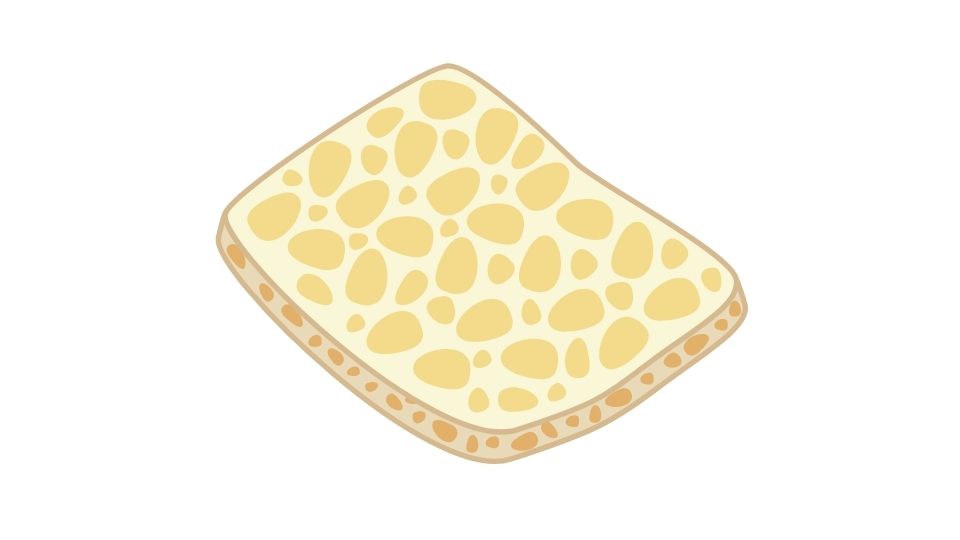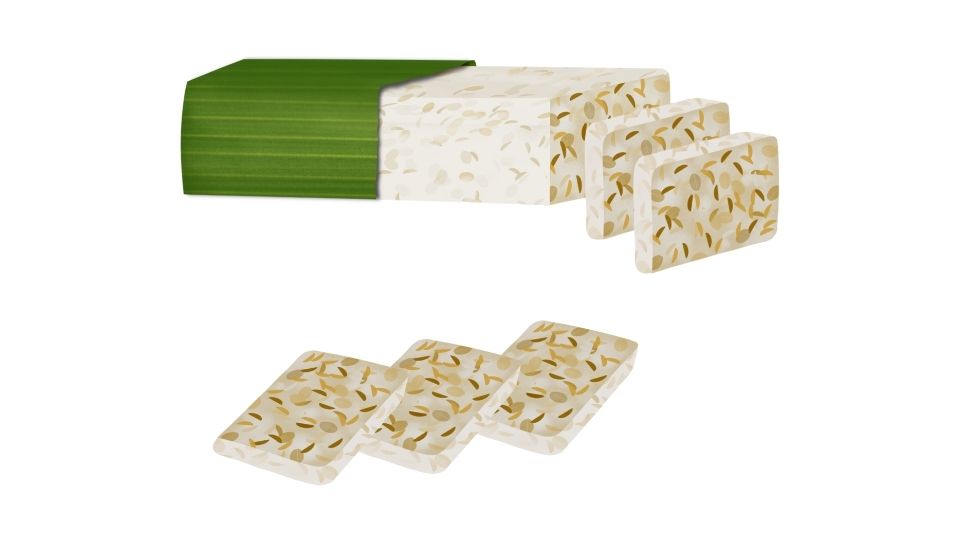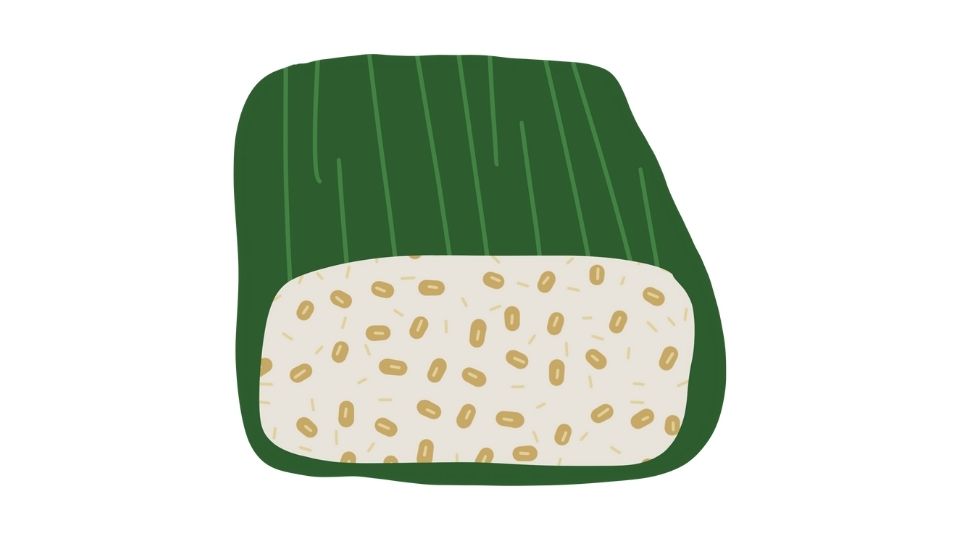Ever wondered how much protein is actually in that weird-looking soy block your vegan friend keeps raving about?
Turns out, tempeh is a protein powerhouse with a whopping 30-31 grams of protein per cup. That’s about the same as a chicken breast, but with some extra plant-based perks thrown in.
I’ll break down everything you need to know about this fermented soybean cake (yum?), from its nutritional profile to how it stacks up against other protein sources – and why you might want to give this funky food a try.

Tempeh: The Protein-Packed Plant Food You’re Probably Ignoring
Let’s get right to it – tempeh is a dense, cake-like food made from fermented soybeans. It’s got a nutty, earthy flavor and a surprisingly meaty texture that makes it popular with the plant-based crowd.
But even if you’re a dedicated meat-eater, tempeh deserves your attention. Here’s why.
The Protein Numbers That’ll Make You Do a Double Take

One cup of tempeh (about 166 grams) delivers:
- 30-31 grams of protein (seriously!)
- About 320 calories
- 17-18 grams of fat (mostly the good kind)
- 15.5 grams of carbs
- 7 grams of fiber
For comparison, a 3-ounce serving (about 85 grams) gives you around 15-18 grams of protein. That’s nearly double what you’d get from the same amount of tofu!
To put it in perspective, tempeh’s protein content rivals animal sources – a cup of tempeh has roughly the same protein as a 4-ounce chicken breast, but with a completely different nutrient package.
Why Tempeh Deserves a Spot in Your Protein Rotation
Tempeh isn’t just about the protein numbers. It’s got some serious nutritional street cred:
It’s a Complete Protein
Unlike many plant foods, tempeh contains all nine essential amino acids your body can’t make on its own. This makes it a complete protein source that supports muscle building, immune function, and overall health.
It’s Loaded With Nutrients
One cup delivers:
- Calcium: ~184 mg (for strong bones)
- Iron: ~4.5 mg (oxygen transport, energy)
- Magnesium: 134 mg (muscle function, sleep)
- Potassium: 684 mg (heart health, blood pressure)
- B vitamins for energy and brain health
It’s Gut-Friendly
The fermentation process that creates tempeh produces beneficial probiotics that support digestive health. Plus, unlike many other protein sources, tempeh contains significant fiber (about 7 grams per cup) to keep things moving.
It’s Heart-Healthy
Tempeh contains zero cholesterol and is naturally low in sodium (just 15 mg per cup). It also contains isoflavones, plant compounds that may help reduce inflammation and support heart health.
How Tempeh Stacks Up Against Other Protein Sources

Tempeh vs. Tofu
- Protein: Tempeh wins big with nearly double the protein (16g vs 8g per 3oz)
- Texture: Tempeh is firmer and meatier; tofu is softer and more versatile
- Flavor: Tempeh has a stronger, nuttier taste; tofu is milder and takes on flavors
- Nutrients: Tempeh typically has more fiber and iron; tofu often has more calcium
Tempeh vs. Meat
- Protein: Comparable to lean meats (cup for cup)
- Fiber: Tempeh has it; meat doesn’t
- Fat profile: Tempeh has healthier fats and zero cholesterol
- Environmental impact: Plant proteins like tempeh have a significantly lower carbon footprint
Tempeh vs. Other Plant Proteins
- Beans/lentils: Tempeh has more protein per serving and is a complete protein
- Seitan: Seitan has slightly more protein but lacks the fiber and nutrient diversity
- Protein powders: Tempeh offers whole food benefits that processed powders can’t match
How to Actually Eat This Stuff

Tempeh’s firm texture and ability to absorb flavors makes it incredibly versatile:
- Slice it for sandwiches and wraps
- Crumble it for tacos, pasta sauce, or chili
- Cube it for stir-fries and salads
- Marinate it in soy sauce, maple syrup, and spices before cooking for the best flavor
Pro tip: Steaming tempeh for 10 minutes before cooking can remove any bitterness and help it absorb marinades better.
The Bottom Line on Tempeh

With 31 grams of protein per cup, tempeh is legitimately one of the most protein-rich plant foods available. But what makes it truly special is the complete package: complete protein, fiber, probiotics, and essential nutrients without the cholesterol or high saturated fat of many animal proteins.
Whether you’re looking to reduce your meat consumption, boost your protein intake, or just try something new, tempeh offers a nutritional profile that’s hard to beat.
And for those tracking their nutrition (who isn’t these days?), adding tempeh to your meal rotation gives you a protein-packed option that supports muscle building while delivering a host of other health benefits.
So next time you’re wandering the health food section of your grocery store, maybe give that weird-looking soy block a chance. Your muscles (and gut) might thank you.




Leave a Reply